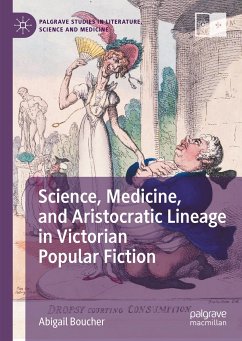
Civic and Medical Worlds in Early Modern England (eBook, PDF)
Performing Barbery and Surgery
Versandkostenfrei!
Sofort per Download lieferbar
68,95 €
inkl. MwSt.
Weitere Ausgaben:

PAYBACK Punkte
34 °P sammeln!
Through its rich foray into popular literary culture and medical history, this book investigates representations of regular and irregular medical practice in early modern England. Focusing on the prolific figures of the barber, surgeon and barber-surgeon, the author explores what it meant to the early modern population for a group of practitioners to be associated with both the trade guilds and an emerging professional medical world. The book uncovers the differences and cross-pollinations between barbers and surgeons' practices which play out across the literature: we learn not only about the...
Through its rich foray into popular literary culture and medical history, this book investigates representations of regular and irregular medical practice in early modern England. Focusing on the prolific figures of the barber, surgeon and barber-surgeon, the author explores what it meant to the early modern population for a group of practitioners to be associated with both the trade guilds and an emerging professional medical world. The book uncovers the differences and cross-pollinations between barbers and surgeons' practices which play out across the literature: we learn not only about their cultural, civic, medical and occupational histories but also about how we should interpret patterns in language, name choice, performance, materiality, acoustics and semiology in the period. The investigations prompt new readings of Shakespeare, Jonson, Middleton and Beaumont, among others. And with chapters delving into early modern representations of medical instruments, hairiness, bloodletting procedures, waxy or infected ears, wart removals and skeletons, readers will find much of the contribution of this book is in its detail, which brings its subject to life.
Dieser Download kann aus rechtlichen Gründen nur mit Rechnungsadresse in A, B, BG, CY, CZ, D, DK, EW, E, FIN, F, GR, HR, H, IRL, I, LT, L, LR, M, NL, PL, P, R, S, SLO, SK ausgeliefert werden.












